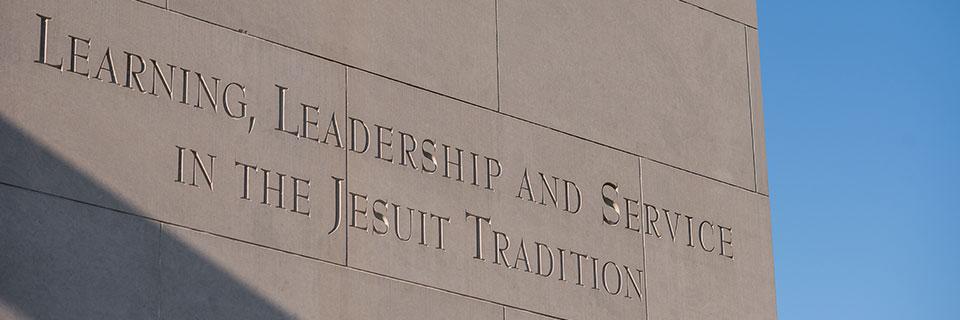Alumnus Part of Team Rebuilding Georgetown’s Student-Run Clinic

Part of the reason that Nick Bader, ’18, was interested in medical school in the first place was his desire to help people most in need.
Bader might not have known it when he applied to Georgetown University School of Medicine, but he would get that chance nearly from day one, taking part in shaping the future of a student-led initiative to find a new home for the clinic serving the most vulnerable in Washington, D.C.
For the last decade, volunteer Georgetown medical students have operated the Health Outreach for Youth and Adults (HOYA) Clinic in the former D.C. General building, which served as the city’s largest shelter for homeless families. Upon arriving on campus, Bader quickly volunteered for the clinic.
“I knew fairly early on that HOYA Clinic was where I wanted to dedicate my ‘extra’ time during medical school,” he said.
Part of the reason he was so sure, he said, was his experience at Rockhurst — and not only because of what he learned in the classroom. Membership in organizations like Voices for Justice underscored the web of social justice issues that affect homeless people, and Jesuit values emphasized the importance of meeting people in need where they are. It was at the clinic that Bader said he saw his first patient as a medical student, and where he helped manage the clinic pharmacy and screened patients who might be in need of legal aid.
However, in October 2018, Washington, D.C., city officials closed the shelter and the clinic as a result. Undeterred, Bader and a committee of seven of his fellow students got to work to find a new permanent home for HOYA Clinc. That work continues, and while it can be difficult to balance coursework and the responsibilities related to the HOYA Clinic, Bader said it’s a project that is very close to his heart.
As data and reporting coordinator for the clinic, Bader said he is currently looking at ways the clinic is doing well in serving its clients, in addition to any new service areas that might be needed. That data analysis is also critical as the clinic works to find grants and other funding sources, he said.
Working in a community as large and diverse as Washington, D.C., with a population with such varied needs, Bader said he feels the experience with HOYA Clinic is the living embodiment of the Jesuit mission and will help him become a much better doctor as a result.
“It is an opportunity to meet individuals where they are and to provide medical care during a time of uncertainty,” he said. “The clinic allows us to develop physician-patient relationships, an essential aspect of medicine that simply cannot be adequately taught in a classroom.”







